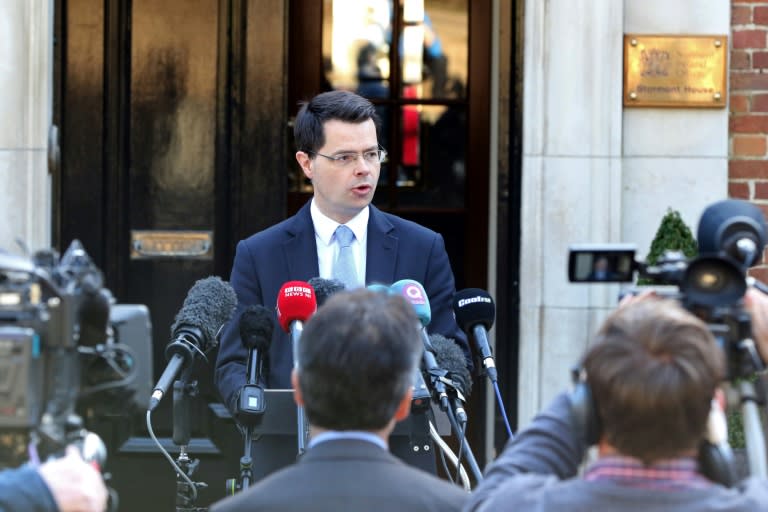N. Ireland parties get extra time to solve stalemate
The British government gave Northern Ireland's main parties extra time to form a power-sharing government after a deadline to resolve their bitter differences expired just two days before the launch of Brexit. The main two parties in the British province abandoned talks before the 4:00 pm (1500 GMT) deadline following a snap election triggered by the bad blood between them. James Brokenshire, Britain's Northern Ireland minister, gave the Democratic Unionist Party (DUP) and Sinn Fein limited additional time to resolve their differences. If they cannot, he will either have to call a third set of elections to the Northern Ireland Assembly in 12 months, or suspend devolution and return administration of the province fully to the UK government. Brokenshire said there was "widespread dismay" that no executive had been formed in the three weeks since the March 2 election. "We now have a short window of opportunity to resolve outstanding issues and for an executive to be formed," he told reporters in Belfast. "On timing, there are a short few weeks in order to resolve matters." He said there was "overwhelming desire" for devolved government in the province and no appetite for an immediate second snap election. Brokenshire said the lack of an agreement on the budget for the province and the impact it would have on public services meant there had to be a fixed outcome soon. Without a deal in place, a senior civil servant is set to take control of Northern Ireland's finances on Wednesday, though only 75 percent of the previous amount of funding will be available. - Blame game - The socialist Sinn Fein party, representing Catholic Irish nationalists, and the conservative DUP, representing pro-British Protestants, blamed each other for the collapse in talks. "We were willing to form an executive today but Sinn Fein have walked away," said DUP leader Arlene Foster, who was first minister in the outgoing government. "There wasn't a spirit of compromise to get back into the executive." In turn, Michelle O'Neill, Sinn Fein's leader in Northern Ireland, blamed DUP intransigence. "We are standing firm. Previous agreements need to be implemented," she said. "Unfortunately, the DUP maintained their position in relation to blocking equality, delivery of equality for citizens -- that was the problem." Tensions boiled over in January when Sinn Fein's terminally-ill deputy first minister Martin McGuinness resigned, citing Foster's handling of a bungled green energy scheme. That brought down the executive and prompted the snap elections in which Sinn Fein gained ground but the DUP narrowly remained the largest party in the 90-seat assembly. McGuinness's funeral on Thursday triggered hopes of a deal. In his eulogy, former US president Bill Clinton urged both sides to "finish the work of peace" in Northern Ireland, while Foster and O'Neill were pictured shaking hands. But both sides remain entrenched. - Brexit backdrop - The crisis comes just before British Prime Minister Theresa May on Wednesday is due to give Brussels formal notification of the UK's intention to leave the European Union. While the United Kingdom as a whole voted to leave the EU, a majority in Northern Ireland wanted the UK to stay in the bloc. There are concerns in Northern Ireland about the impact Brexit might have on the open border with the Republic of Ireland, an EU member state. Irish foreign minister Charlie Flanagan said the power vacuum was "particularly concerning" for the island as the "serious challenges" of Brexit were about to begin. Michel Barnier, the EU's chief Brexit negotiator wrote in the Financial Times newspaper on Monday: "We will not stand for anything that weakens dialogue and peace in Northern Ireland."



